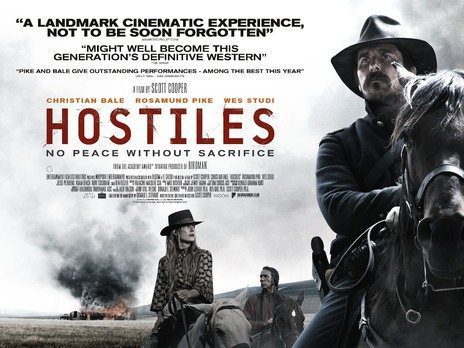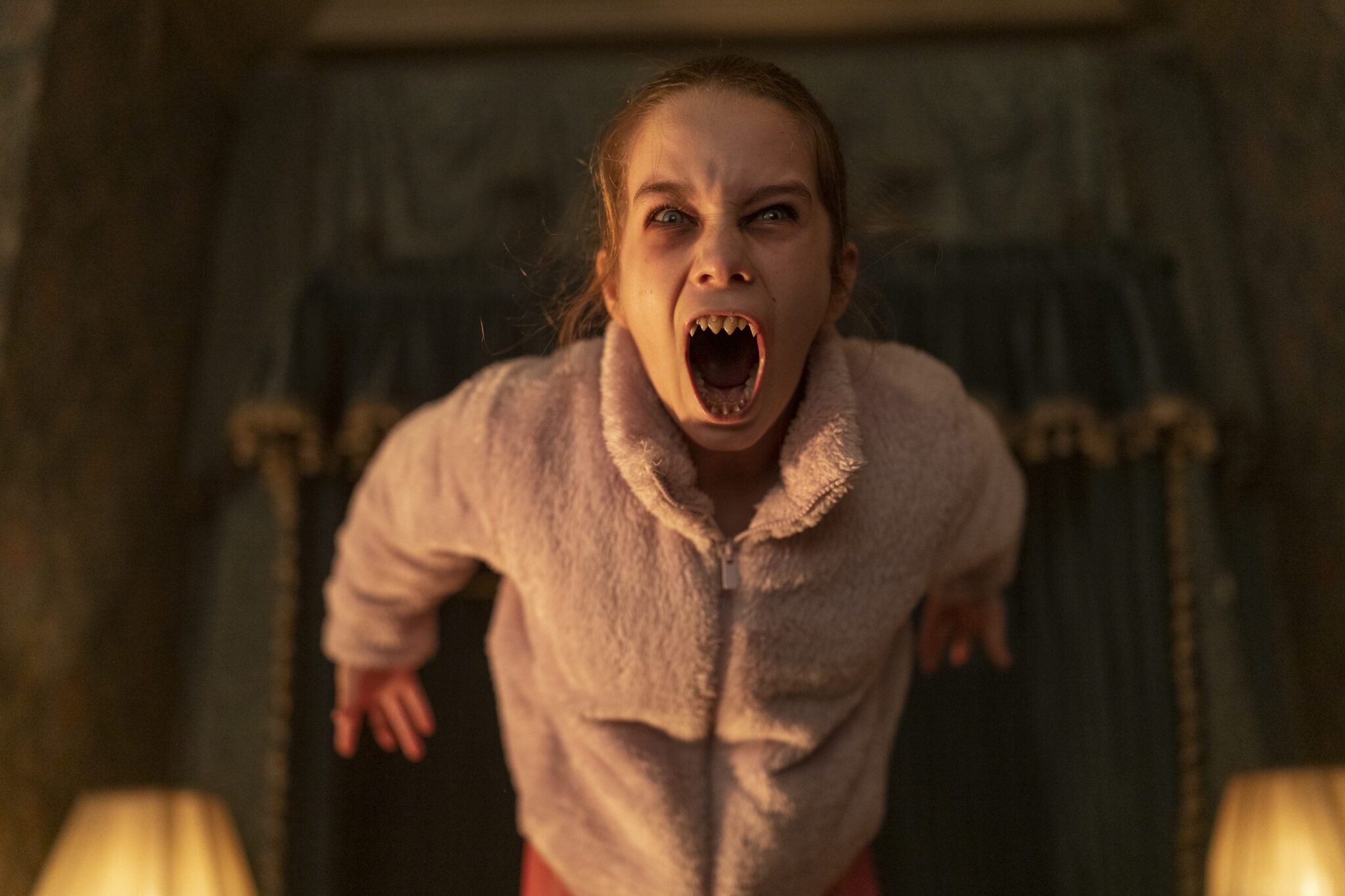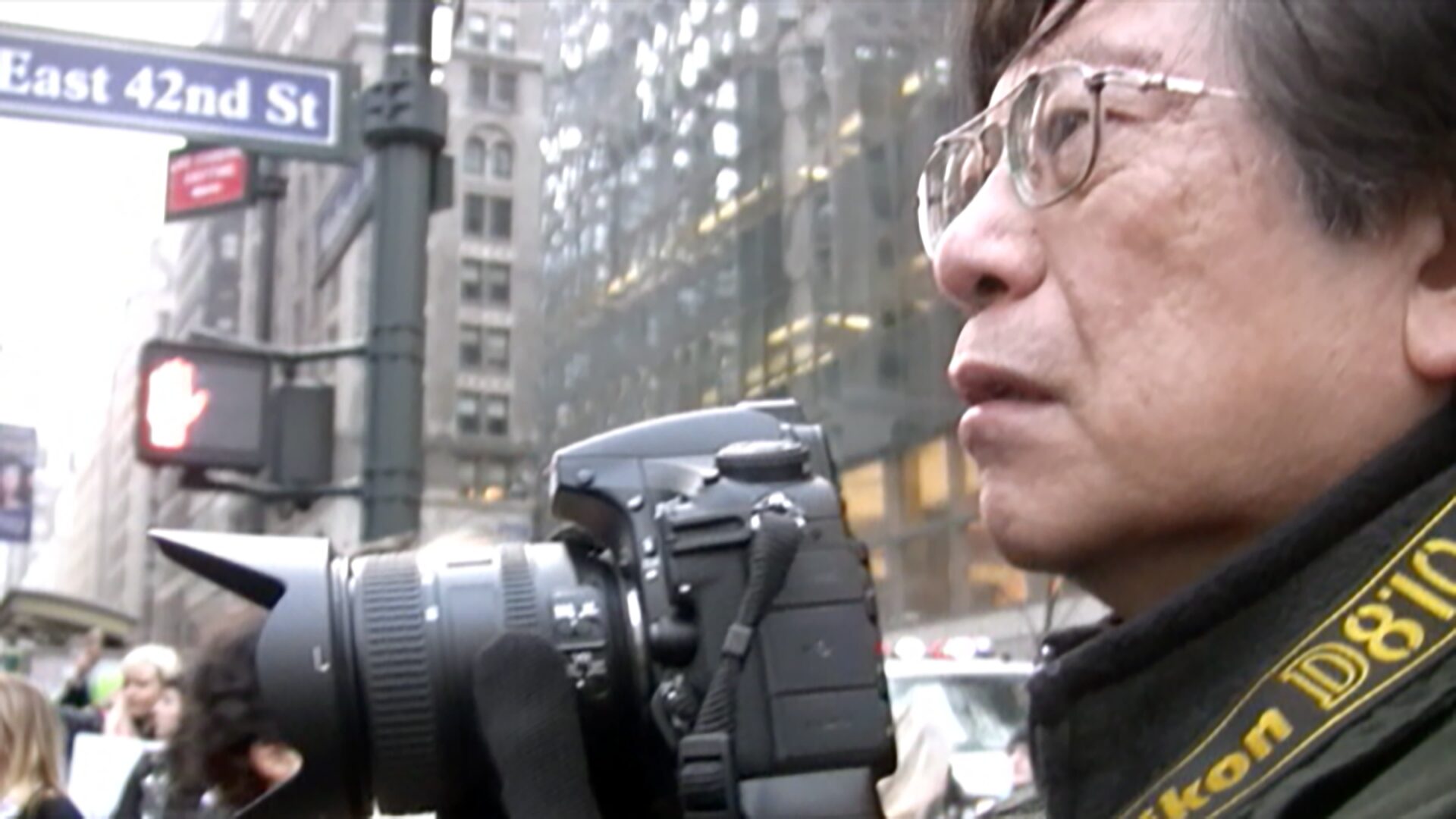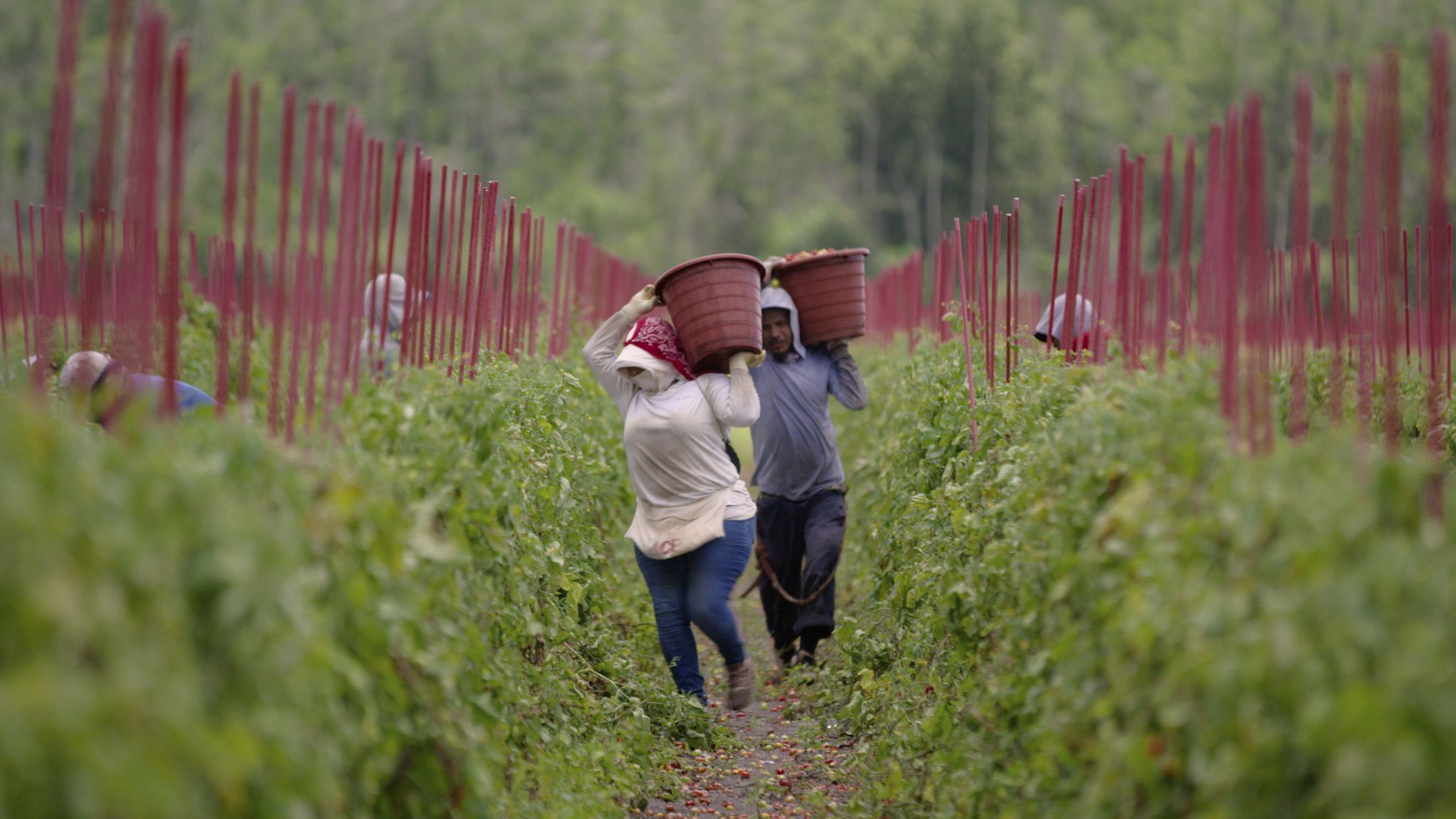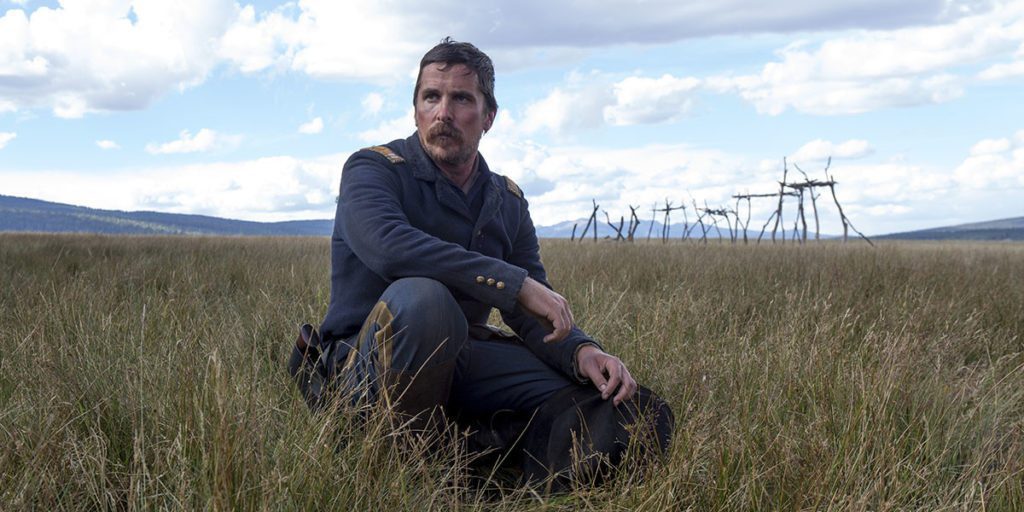 In an opening scene that is shocking for both its lack of humanity and its restraint, Rosalie Quaid (Rosalind Pike) witnesses the murder of her husband and children at the hands of a Comanche raiding party in 1892. A few days later, Quaid is discovered by Captain Joe Blocker (Christian Bale), who is unwillingly escorting a dying Cheyenne war chief, Yellow Hawk (Wes Studi), back to his homelands. As this band of broken individuals comes together, they experience what it means to deal with the aftermaths of war, and the beginnings of grace.
In an opening scene that is shocking for both its lack of humanity and its restraint, Rosalie Quaid (Rosalind Pike) witnesses the murder of her husband and children at the hands of a Comanche raiding party in 1892. A few days later, Quaid is discovered by Captain Joe Blocker (Christian Bale), who is unwillingly escorting a dying Cheyenne war chief, Yellow Hawk (Wes Studi), back to his homelands. As this band of broken individuals comes together, they experience what it means to deal with the aftermaths of war, and the beginnings of grace.
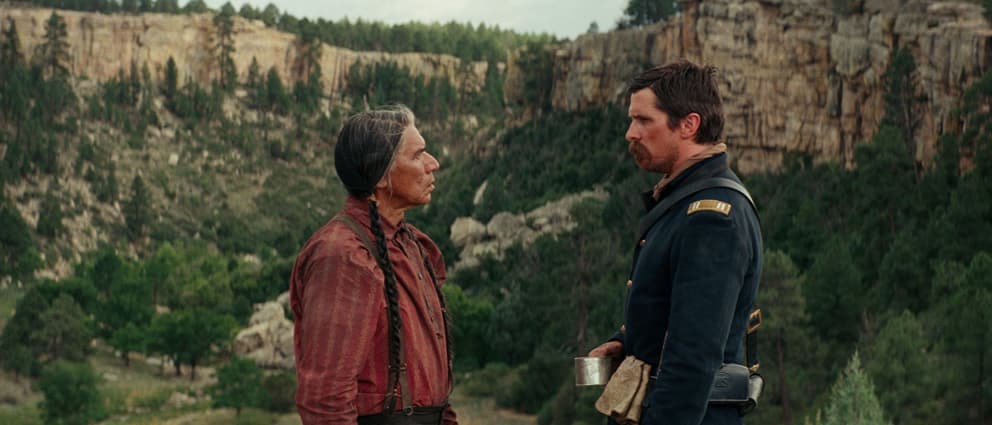 Bale may be playing his most nuanced role since Dicky Eklund in?The Fighter, as a decorated war hero who has been hunting various Native American tribes for years and finds himself longing for his discharge from military service. He’s arm-twisted into escorted Yellow Hawk, threatened with losing his pension and a court martial. He’s joined in this babysitting mission by several soldiers loyal to him, notably Master Sergeant Thomas Mertz (Rory Cochrane) and Buffalo Soldier Corporal Henry Woodson (Jonathan Majors),?and some hand-picked by his colonel. As they travel across country from New Mexico to Montana, Blocker’s disgust in his orders reaches malevolent levels, even as the party is challenged by other threats.
Bale may be playing his most nuanced role since Dicky Eklund in?The Fighter, as a decorated war hero who has been hunting various Native American tribes for years and finds himself longing for his discharge from military service. He’s arm-twisted into escorted Yellow Hawk, threatened with losing his pension and a court martial. He’s joined in this babysitting mission by several soldiers loyal to him, notably Master Sergeant Thomas Mertz (Rory Cochrane) and Buffalo Soldier Corporal Henry Woodson (Jonathan Majors),?and some hand-picked by his colonel. As they travel across country from New Mexico to Montana, Blocker’s disgust in his orders reaches malevolent levels, even as the party is challenged by other threats.
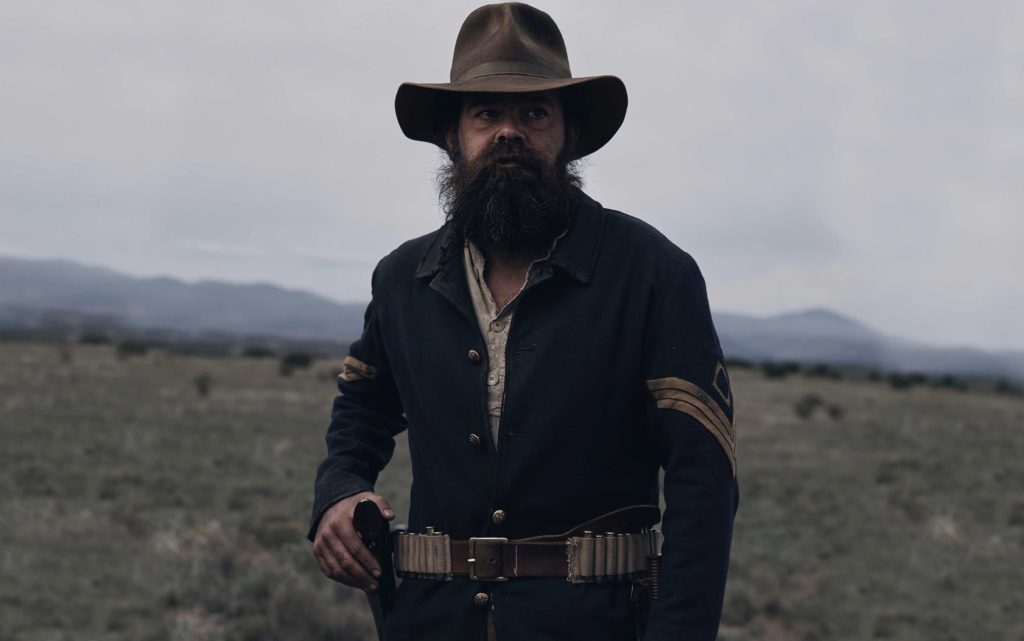 Director/writer Scott Cooper (Crazy Heart, Out of the Furnace, Black Mass) holds form with a reality that generates the rugged aspects of the early frontier days, while transplanting the issues and ideas of war, race relations, and stereotypes backward nearly 125 years to the Wild West. Blocker and Mertz deal with PTSD in different ways, with Mertz’s emotional agony paralyzing him to the point of immobility, while Blocker’s assumptions about Native Americans causes him to believe he’s better than any or all of them, as a more civilized person (even though we’ve watched the levels of his incivility). But the blend of war?and?race? Those issues give the somewhat languid transition from New Mexico to Montana a real sense of energy and power.
Director/writer Scott Cooper (Crazy Heart, Out of the Furnace, Black Mass) holds form with a reality that generates the rugged aspects of the early frontier days, while transplanting the issues and ideas of war, race relations, and stereotypes backward nearly 125 years to the Wild West. Blocker and Mertz deal with PTSD in different ways, with Mertz’s emotional agony paralyzing him to the point of immobility, while Blocker’s assumptions about Native Americans causes him to believe he’s better than any or all of them, as a more civilized person (even though we’ve watched the levels of his incivility). But the blend of war?and?race? Those issues give the somewhat languid transition from New Mexico to Montana a real sense of energy and power.
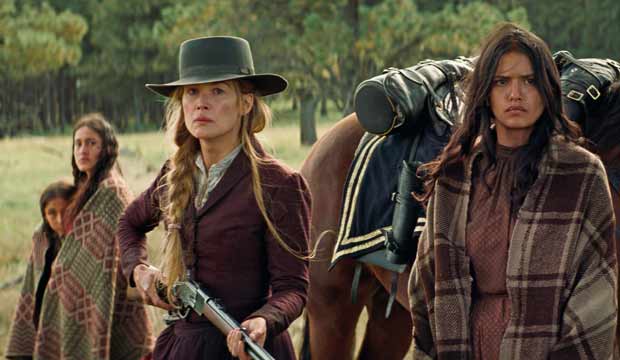 Blocker’s hatred toward Yellow Hawk goes so deep that he values the African American Woodson more, because the two have served on the same side of the conflict. [To reinforce this sense, there’s a terrifically visual scene where Blocker orders the black Woodson to place the Indian Yellow Hawk in chains.] While Blocker is intent on purifying the West, he makes concessions based on sides of the battle – and yet cannot see the humanity in the other side because of the pain that the war has caused. This goes deeper than the emotional or mental stage of PTSD that Mertz has experienced – this is a reminder that war literally destroys our humanity, forcing us to see each other as means to an end or impediments to that end?rather than as fellow travelers on the road to death. It’s this sense of death – and the traveling – that Cooper’s script and the Bale/Studi delivery allow us to unpack against the sometimes stark, sometimes beautiful mountains of the west.
Blocker’s hatred toward Yellow Hawk goes so deep that he values the African American Woodson more, because the two have served on the same side of the conflict. [To reinforce this sense, there’s a terrifically visual scene where Blocker orders the black Woodson to place the Indian Yellow Hawk in chains.] While Blocker is intent on purifying the West, he makes concessions based on sides of the battle – and yet cannot see the humanity in the other side because of the pain that the war has caused. This goes deeper than the emotional or mental stage of PTSD that Mertz has experienced – this is a reminder that war literally destroys our humanity, forcing us to see each other as means to an end or impediments to that end?rather than as fellow travelers on the road to death. It’s this sense of death – and the traveling – that Cooper’s script and the Bale/Studi delivery allow us to unpack against the sometimes stark, sometimes beautiful mountains of the west.
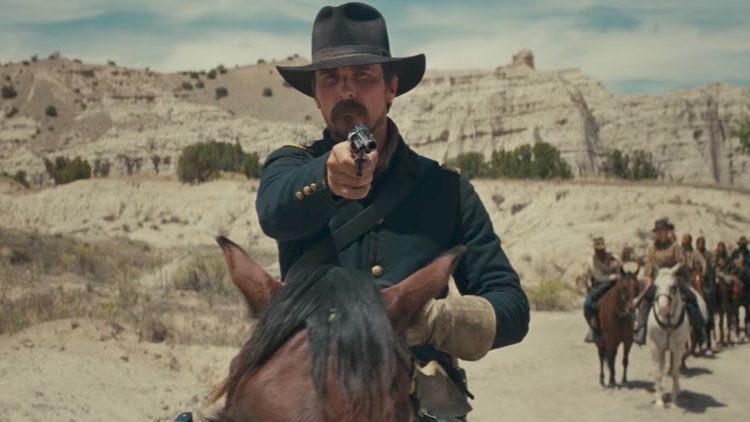 Ironically, Blocker set out on a mission he found morally inconceivable because of his pension (the wages of this war he raged) and finds himself what he actually earned (the pain and brokenness he carried),?but?in the journey, he finds himself wrestling with redemption for himself, for his enemy, and for the war. One can only imagine that several endings would have been justified to?Hostiles, but thankfully, Cooper chooses the one that leaves us with hope.
Ironically, Blocker set out on a mission he found morally inconceivable because of his pension (the wages of this war he raged) and finds himself what he actually earned (the pain and brokenness he carried),?but?in the journey, he finds himself wrestling with redemption for himself, for his enemy, and for the war. One can only imagine that several endings would have been justified to?Hostiles, but thankfully, Cooper chooses the one that leaves us with hope.
Still, wrestling with the ramifications of Blocker’s choices and the story as it unfolds, I find myself wondering: what are the wages of the violence we use, from the words and thoughts to the casual everyday violence? How are we changed by how we see others, and what would we see about ourselves? In?Hostiles, we might recognize that the enemy is us.

